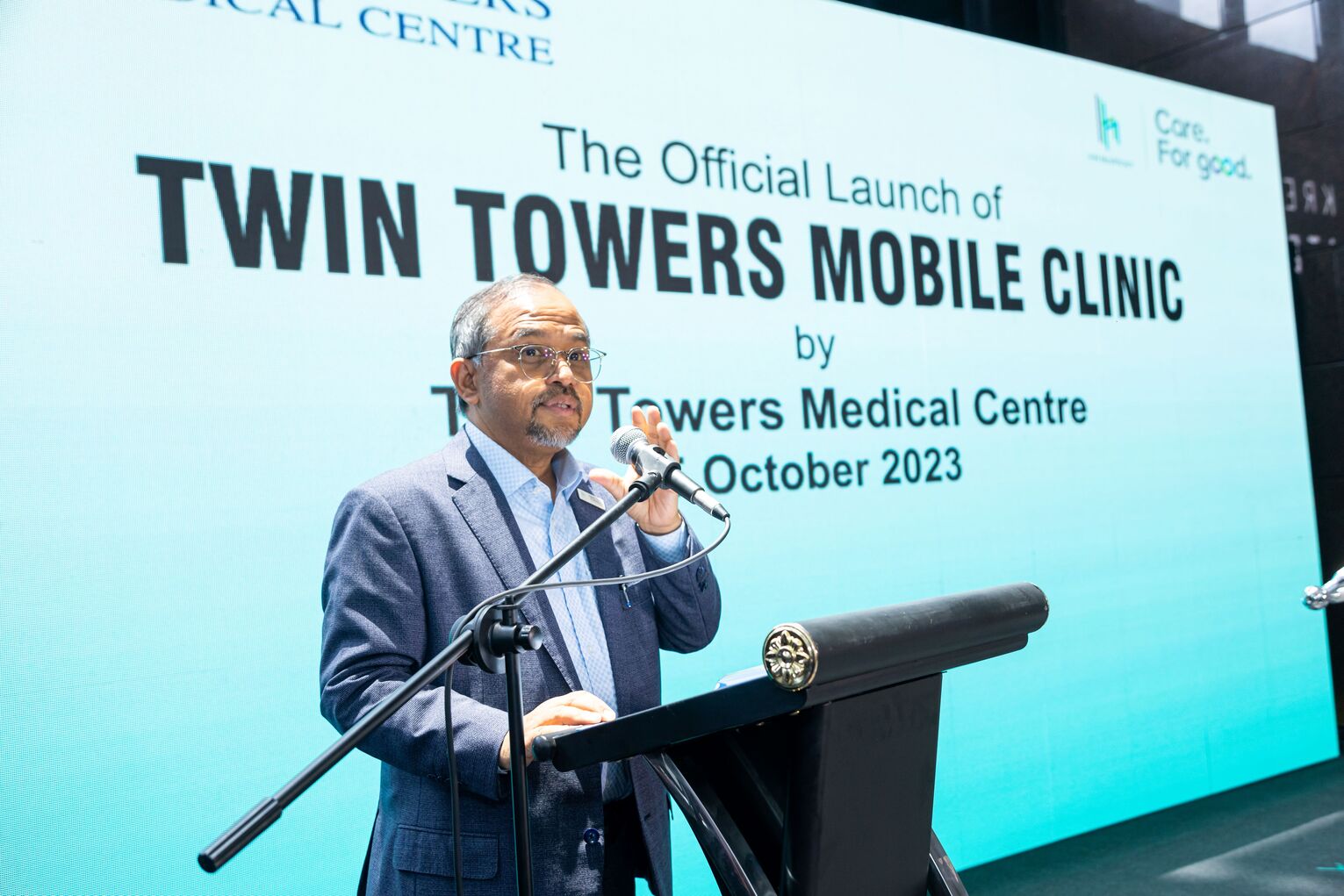KUALA LUMPUR, Oct 6 — Twin Towers Medical Centre has launched its first mobile clinic catering to the industrial sector, offering accessible and comprehensive occupational health and safety services to workers.
The mobile clinic, which takes the form of a large bus, provides X-ray services, audiometry tests, medical examinations, and consultations.
According to Mohd Hareeff Muhammed, IHH Healthcare Malaysia’s Head of Ambulatory, Ancillary and Allied Health, the mobile clinic will offer industrial workers a range of services, from routine check-ups to specialised consultations.
“We will be equipped to handle various medical conditions, provide preventive care, and offer educational resources to promote a healthier lifestyle, making it easier for patients to receive comprehensive care.
“More than that, the mobile clinic’s range of services can be customised to meet specific needs, and its scheduling is flexible,” said Mohd Hareeff at the Twin Towers Mobile Clinic launch held at Prince Court Medical Centre here yesterday.
Currently, the mobile clinic will exclusively operate within the Klang Valley, focusing on the industrial areas of Shah Alam, Sepang, and Klang. Despite being a new initiative for Twin Towers Medical Centre, Mohd Hareeff said there are plans to expand the service to other parts of the country.
Health Minister Dr Zaliha Mustafa, who officiated the launch, expressed openness to considering expansion plans presented by Twin Towers Medical Centre to the Ministry of Health (MOH).
“The regulatory part is on our side, so we can help that. Meaning, maybe after this, not only will [the mobile bus] operate in the Klang Valley but can [be carried out] in a wider area,” said Dr Zaliha.
The health minister viewed the initiative as another way to “strengthen and expand” the MOH’s public-private partnership and encourage hospitals to come up with innovations that bring health care closer to the community and workers.
Dr Zaliha emphasised the vital role played by industrial workers in driving the nation’s economic progress. The Twin Towers Mobile Clinic, targeting the health care needs of industrial workers who may have had limited access to medical facilities, is a significant milestone, said Dr Zaliha.
In 2021, the Department of Statistics Malaysia reported 21,534 occupational accidents out of a working population of 15.06 million, including 301 fatal injuries. This equated to a rate of 1.43 occupational accidents per 1,000 workers and 2.0 fatal injuries per 100,000 workers.
Additionally, there were 5,289 cases of occupational diseases, with 3,648 being noise-related hearing disorders.
As a result, compensation claims for permanent disability to the Social Security Organisation (Socso) in 2021 reached RM447.17 million. About RM161.49 million was spent on rehabilitation, and RM306.04 million was spent on dialysis.
“The MOH works closely with Socso in the running of the compensation medical boards by providing the relevant specialists to carry out the disability assessments.
“Evidence shows that occupational accidents and diseases not only impact the organisation but may also carry a social implication towards the family of the affected employee. Therefore, it is important to manage holistically the health of employees taking into consideration all aspects of health be it extrinsic or intrinsic,” said Dr Zaliha.
While the MOH works closely with the Department of Occupational Safety and Health (DOSH), the National Institute of Occupational Safety and Health (NIOSH) and other agencies involved in the provision of occupational health services to address health related issues, it also advocates for workplace wellness programmes.
The MOH offers employers and employees the KOSPEN WOW programme as a comprehensive workplace health intervention program designed to reduce the burden of non-communicable diseases (NCDs) and related risk factors by empowering individuals to adopt a healthier lifestyle.
“MOH will continue to work with the industry in order to enhance occupational safety and health at the workplace in line with our enhanced public-private partnership and look forward to having more engagement and joint activities.”








